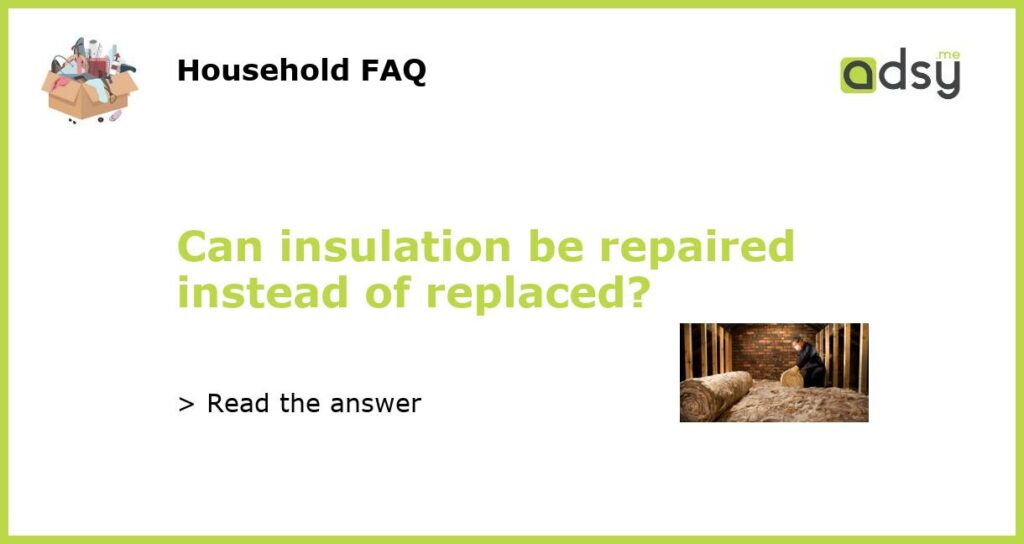Insulation Repair vs. Replacement: Which Option is Right for You?
Insulation is a crucial component of any home or building, as it helps to regulate temperature and increase energy efficiency. Over time, however, insulation can become damaged or deteriorate, leading to decreased effectiveness and potential energy waste. When insulation issues arise, many homeowners wonder if it’s possible to repair the insulation rather than replacing it entirely. In this article, we will explore whether insulation can be repaired and when replacement may be necessary.
Understanding Insulation Damage
Insulation damage can occur for various reasons, including water leaks, pest infestations, improper installation, or simply the aging process. Signs of insulation damage may include drafts, temperature fluctuations, high energy bills, or visible deterioration such as crumbling or missing insulation material.
When it comes to damaged or deteriorating insulation, the extent of the damage is a critical factor in determining whether repair or replacement is the best option. Small, localized damage can often be fixed without replacing the entire insulation system. However, widespread or severe damage may require a full insulation replacement for optimal energy efficiency and performance.
Benefits of Insulation Repair
Repairing damaged insulation can offer several advantages for homeowners. One major benefit is cost savings. In many cases, repairing localized insulation damage is more cost-effective than replacing the entire insulation system. By addressing specific areas of concern, homeowners can reduce energy waste and optimize energy efficiency without breaking the bank.
Furthermore, insulation repair can be a less disruptive option. Instead of removing and replacing entire sections of insulation, targeted repairs allow homeowners to address problem areas without causing major disturbances to their living environment. This is especially beneficial for older homes or buildings where non-invasive solutions are preferred.
Lastly, reusing existing insulation can be an environmentally friendly option. By opting for insulation repair, homeowners can reduce waste and minimize their environmental impact. This is particularly important for individuals or communities with a focus on sustainability and conservation.
When Replacement is Necessary
While insulation repair offers several advantages, there are instances where replacement is the more prudent choice. Firstly, if the insulation has widespread damage throughout the entire structure or a large portion of it, it may be more cost-effective and efficient to replace the insulation entirely.
Additionally, older insulation materials may not meet current energy efficiency standards. If your insulation is outdated or no longer effective, it is recommended to replace it with newer, more efficient insulation options. This will ensure that your home remains comfortable and energy-efficient in the long run.
Lastly, if you are embarking on a major renovation project or building a new home, it may be more practical to replace the insulation altogether. This allows for a fresh start and ensures that your insulation system is properly installed and optimized.
Seek Professional Advice
When faced with insulation issues, it is advisable to consult with a professional insulation contractor. They will be able to assess the extent of the damage, provide expert advice, and recommend the most suitable course of action. Whether repair or replacement is necessary, enlisting the help of professionals will ensure the job is done correctly and effectively.
In conclusion, while insulation repair can be a viable option for certain situations, there are instances where replacement is the more appropriate choice. The extent of the damage, the age of the insulation, and the specific needs of the homeowner all play a role in determining the best course of action. By seeking professional advice and considering the benefits and drawbacks of both options, homeowners can make an informed decision regarding their insulation system.

